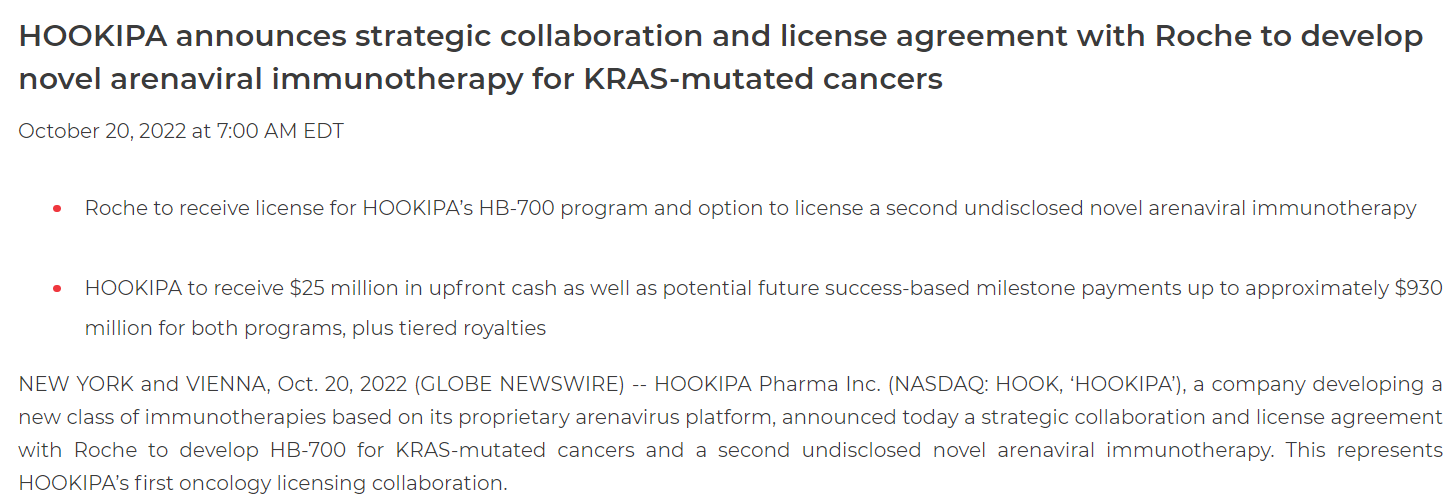On October 20, Roche and HookipaPharma entered into a strategic collaboration and licensing agreement to co-develop HB-700 and a second undisclosed novel arenavirus immunotherapy for KRAS-mutant cancers.
Under the terms of the agreement, Roche will pay Hookipa an upfront payment of $25 million, which is also eligible to receive development and commercialization milestone payments for HB-700 and other product candidates (totaling approximately $930 million), as well as high-single-digit payments Tiered commissions to double-digit sales.
In addition, Roche has the option to expand the initial collaboration by adding an additional product candidate, after which HOOKIPA will receive an additional $15 million payment on option exercise.
KRAS is a gene that acts as a cell growth switch. When genes are mutated or wrong, cells can spin out of control. KRAS mutations are one of the most common mutations that cause cancer.
HB-700 is an investigational arenavirus immunotherapy designed to treat KRAS-mutated lung, colorectal, pancreatic and other cancers. At the same time, HB-700 is also a replicative dual vector therapy targeting the most common KRAS mutations (G12D, G12V, G12R, G12C and G13D), which has a stronger effect than a single mutation inhibitor.
Through the collaboration, HOOKIPA will conduct research and early clinical development of HB-700. Following the completion of the Phase Ib trial, Roche will undertake the subsequent development and commercialization process.
“We are delighted to collaborate with HOOKIPA on their arenavirus technology. This technology has clinically demonstrated the ability to induce potent antigen-specific CD8+ T cell responses, symbolizing the potential of a new cancer immunotherapy therapy. “This collaboration further strengthens Roche’s leadership in oncology,” said James Sabry, global head of pharmaceutical partnerships at Roche. “We will aggressively advance this innovative platform to provide patients with KRAS-mutant cancers, as well as patients with other potential cancer types, more choose.”









